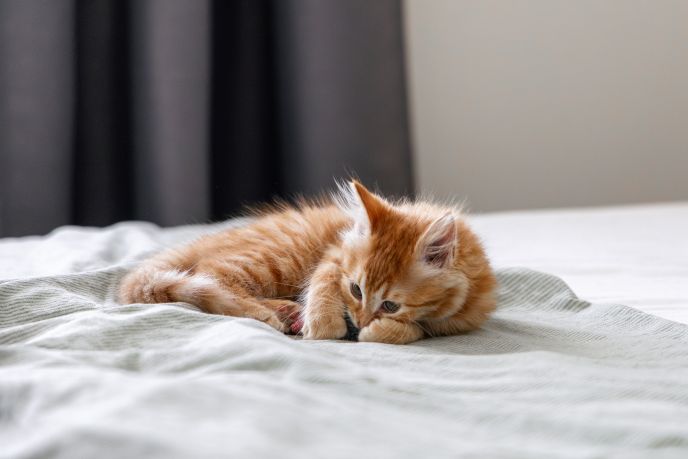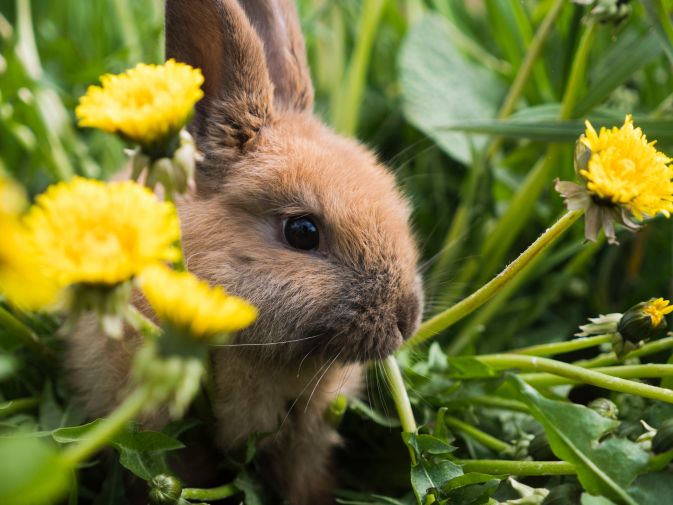
Connect with a verified veterinarian in minutes. Licensed vets are available 24/7 to answer your questions. No need to worry about your furry family member.
Having pets in a dormitory setting presents both unique challenges and wonderful opportunities for college students. Beyond providing companionship and comfort, pets can also become an integral part of a student’s daily routine and social life. Balancing pet ownership responsibilities alongside academic studies and dorm living demands can be tricky, requiring careful planning and consideration to manage effectively.
Maintaining pets in a dorm is no simple feat. The challenges can range from learning the school’s pet policies and choosing an animal that best matches a student’s lifestyle to roommate considerations, space restrictions, and overall well-being issues arising. But these challenges are manageable with careful guidance.
Here, we’ll address some of the challenges associated with maintaining pets in the dorm by offering six practical tips that make keeping animals easier and more satisfying for all involved. Just as students often seek professional assistance to write my paper online, these insights should serve as helpful guides in making sure both the pet and the owner thrive in their living together.

Tip 1: Know Your Dorm’s Pet Policy
Researching your school’s specific pet policy is a crucial first step for any would-be pet owner living in a dorm. Understanding what types of pets are allowed, as well as any size or breed restrictions, is vital. Talk to your housing department and request a copy of the pet policy, making sure to adhere to all rules and regulations. Take into account the comfort level of your roommates and their possible allergies or fears concerning pets. Failing to comply with your dorm’s pet policy can lead to fines or even eviction, so this step is not to be taken lightly.
Tip 2: Choose the Right Pet
Once you have a clear understanding of your dorm’s pet policy, the next step is to carefully choose the right pet. Not all pets are suitable for dorm life. Factors such as space, noise, care requirements, and your daily routine must be considered. For example, fish, hamsters, or other small caged animals might be more suitable for a dorm setting than dogs or cats. Research the specific needs of different animals and think about your ability to meet those needs within the constraints of dorm living. Low-maintenance pets can be a blessing in a busy college environment, so consider them carefully before making your final decision.

Review symptoms, medications & behavior to keep your pets healthy with a Vet Online in just minutes.
Ask a Vet Live NowTip 3: Create a Comfortable Living Space
Creating a pet-friendly environment within your dorm is essential for both the comfort of your pet and your own peace of mind. Start by designating a specific area for your pet that includes all the necessities, such as bedding, toys, food, water dishes, and, if required, a litter box. Consider your pet’s natural behavior and needs; for example, a small climbing structure might be appreciated by a pet hamster, while a fish will need a properly filtered tank.
Organization is key to keeping the space tidy and ensuring that everything is easily accessible. Regular cleaning and maintenance of this area will keep odors and mess under control and also foster a healthy environment for your pet. Discuss with roommates about any concerns they may have and work together to keep the living space pleasant for everyone involved.
Tip 4: Establish a Routine
College life is often filled with a fluctuating schedule, but establishing a consistent routine for your pet is essential for its well-being. Plan out a daily schedule that includes feeding times, exercise (if necessary), and regular attention. This routine will help your pet feel secure and prevent potential behavior problems.
Consider your class schedule, study times, and social activities, and see how your pet’s care fits into that. You may need to coordinate with roommates or friends to ensure your pet’s needs are met when you are unavailable. Don’t forget to include time for cleaning and maintaining your pet’s living space as part of this routine.
Just as you plan your academic responsibilities, planning your pet care will ensure a harmonious balance between college life and pet ownership. Pets, much like assignments, thrive on consistency, so making sure to stick to the routine will benefit both you and your furry (or scaly or feathery) friend.
Tip 5: Plan for Socialization and Exercise
Depending on the type of pet you have, socialization and exercise might be essential for its overall well-being. For example, dogs require regular exercise and interaction with other animals and people. Even smaller pets, like birds or rodents, may need stimulation and playtime.
Plan for ways to meet these needs within the dorm and surrounding campus areas, always following campus rules and local ordinances. Joining a pet-friendly group or finding a nearby park might be good options. Additionally, consider your pet’s individual personality and needs when planning socialization activities. If your pet is more timid or requires special care, adjust your plans accordingly to ensure a positive experience.
Tip 6: Consider Health and Well-being
Ensuring the health and well-being of your pet is a vital responsibility. Regular check-ups with a vet, proper vaccinations, and attentive daily observation for any signs of illness or distress are necessary. Research local veterinary services, including emergency care, and keep their contact information handy.
Your pet’s mental well-being is equally important. Providing enrichment, attention, and love will contribute to a happy, well-adjusted pet. Always keep an eye on your pet’s behavior, as changes might signal a health problem or other issues that need to be addressed.
Having pets in a dorm is a rewarding yet complex task that demands careful planning, just like academic success requires finding the best research paper writing services. From understanding your dorm’s pet policy to ensuring the health and well-being of your pet, responsible pet ownership in a college setting is an ongoing commitment that provides immeasurable benefits in terms of companionship and personal growth.
These 6 tips aim to make keeping pets in your dorm easy and enjoyable. By following these guidelines, you will foster a loving relationship with your pet and ensure that you both thrive in your shared living environment. The joys of pet ownership can be a memorable and fulfilling part of your college experience, adding warmth and companionship to your daily routine.
Connect with a verified veterinarian in minutes. Licensed vets are available 24/7 to answer your questions. No need to worry about your furry family member.

Tom
Tom has always loved to write since he was little - he wanted to be either a writer or a veterinary doctor, but he ended up being a professional writer while most of his works are based on animals. He was born in San Francisco but later moved to Texas to continue his job as a writer. He graduated from the University of San Francisco where he studied biotechnology. He is happily married and a soon to be father!
Review symptoms, medications & behavior to keep your pets healthy with a Vet Online in just minutes.
Ask a Vet Live Now
